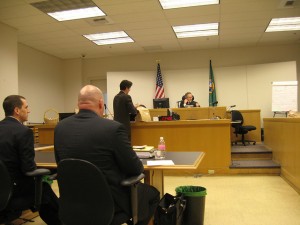When we handle a criminal case, it is very common that we are able to negotiate an early plea offer for our clients. Of course, our clients typically have a lot of questions about the plea and how it will impact their lives. But an interesting question that we are sometimes asked is whether or not a person can plead guilty even if they are not actually guilty.
Defendants who maintain their innocence may, understandably, want to plead guilty even though they do not believe that they are guilty. After all, it is never guaranteed that someone will win a trial, and losing a trial could subject a person to jail time and other penalties that are much, much worse than the penalties that they would face if they accept a plea offer. Further, trials can be very costly; not just monetarily but also in terms of the time and emotional investment that a defendant would have to make. Those things considered, a defendant may really want to accept a plea for a reduced charge but they do not want to admit guilt.
In New Jersey – unlike some other states – there is no such thing as a “no contest” plea or anything of that nature. The rule is that a defendant who is pleading guilty must actually admit guilt, on the record, under oath. In fact, they have to admit to every single element of the offense that they are pleading guilty to. In addition, the defendant cannot plead guilty and then explain to the judge why they really are not guilty. This will result in the judge rejecting the guilty plea. However, a defendant could, after the guilty plea is accepted, argue that there are mitigating factors that should result in a smaller sentence. But even so, they cannot argue that innocence is a mitigating factor.
When discussing a plea with an attorney, a defendant should keep these points in mind and understand that there will be a record of their admissions to the elements of the crime that they are pleading guilty to.


